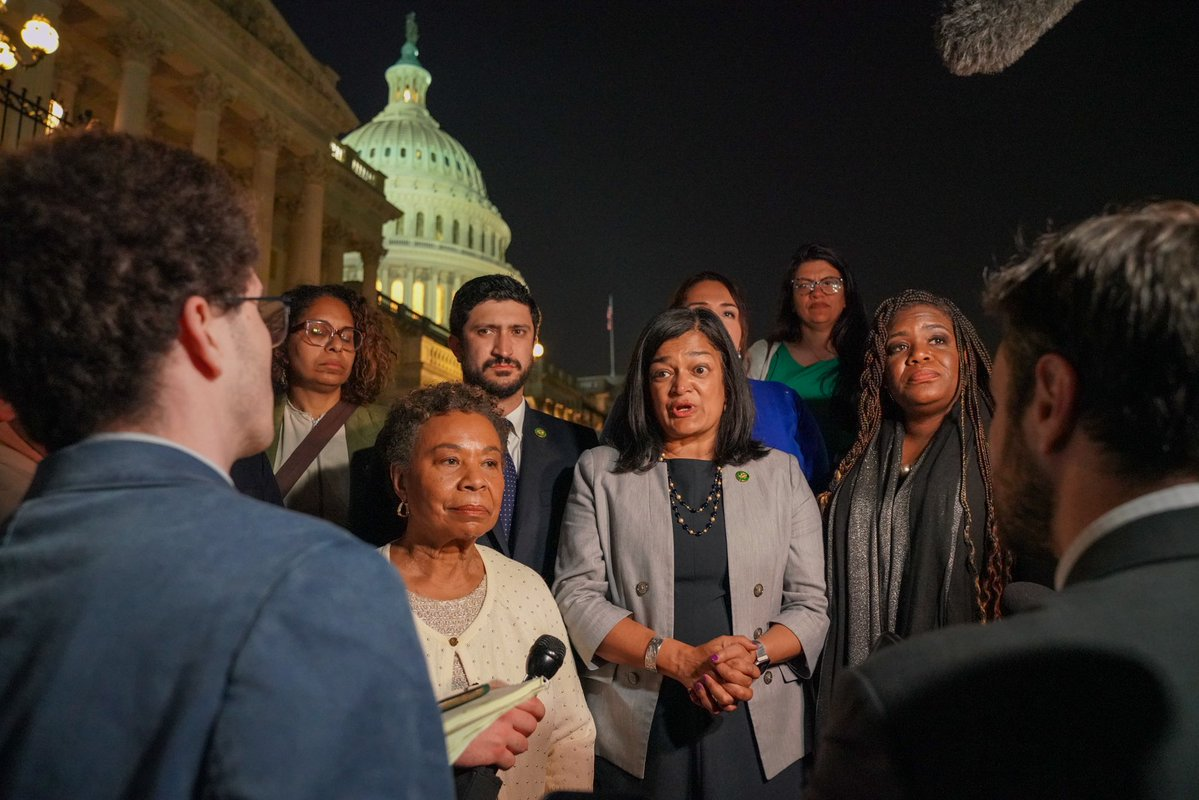
Indian American Reps Score On Debt Ceiling Bill: 2 Yes, 2 No
India-West News Desk
WASHINGTON, DC (IANS) – As US lawmakers raced to prevent a catastrophic default, the House of Representatives has overwhelmingly passed a bill to suspend the country’s debt limit through January 1, 2025. The final tally for the vote was 314 to 117; 149 Republicans and 165 Democrats voted for the bill and 71 Republicans and 46 Democrats voted against it.
Voting along was Indian American representatives Raja Krishnamoorthi and Shri Thanedar. Reps Pramila Jayapal and Ro Khanna however voted ‘no.’
All four are Democrats and their votes showed the deep concern that the debt ceiling has raised amongst politicians on the Hill. While some simply don’t care and have approached the whole situation with their partisan politicking, most seem to have considered the compromise bill that was thrashed out by President Joe Biden and Speaker Kevin McCarthy. Both had to work on the extremes of their political wings.
The debt ceiling is a spending limit set by the US Congress that determines how much money the government can borrow. Failure to raise it beyond the current cap of roughly $31.4 trillion by June could result in the US defaulting on its debt. That would mean the government could not borrow any more money or pay all its bills and threaten to wreak havoc on the needy, global economy, affecting prices and mortgage rates in other countries.
Jayapal, Chair of the Congressional Progressive Caucus said, “I was proud to join my fellow progressives to say NO to the GOP’s bad debt ceiling deal. This bill protected the wealthiest billionaires at the expense of working families, and I refused to accept that.” Her reasoning, reflecting the opinion of the caucus, was a mix of both politics and reality. “While the Biden Administration was able to walk back many of the extreme GOP’s worst ideas, we should never have gotten to this place. This was a manufactured crisis where Republicans took our economy hostage – and it sets a very dangerous precedent – that Republicans can ignore the rule of law, ignore our obligation to pay our debts, and ignore the needs of our constituents, all to advance their political priorities. This is not the way that Congress should do business,” she said.
“We appreciate the President and White House negotiating on behalf of the people given the circumstances. I am also very grateful to Democratic Leader Jeffries for being a strong voice against MAGA extremists and FOR the American people. I am clear that we simply could not allow the country to default—that is who we are as responsible Democrats negotiating with an extreme party that was willing to take this country over the cliff with a catastrophic default,” Jayapal added.
Ro Khanna, the California congressman, who straddles a fine line in his politics working with the White House and the liberal wing of the Democrats said, “I’m voting no on the deal,” said Ro Khanna. At a time when we’re facing a climate crisis, we shouldn’t be giving a green light to constructing the Mountain Valley Pipeline.”
Raja Krishnamoorthi, who represents Illinois 8th District and is a member of several powerful House committees while voting for the bill said, “Defaulting on our debt would not only cause an economic disaster, it would also embolden our adversaries and weaken our standing both at home and abroad. Let’s lift the debt ceiling and prevent such a scenario from occurring.”
Newly arrived at Congress, Michigan’s Shri Thanedar first polled his constituents online, tweeting a day before the vote, “I am leaning towards voting YES on the debt-limit bill. Any thoughts??” Ever the pragmatist businessman, he said after his vote, “Americans pay their bills, Congress must ensure we pay ours.”
The legislation will next need to be passed by the Senate before it can be sent to President Biden to be signed into law.
Lawmakers are racing the clock to avert a first-ever default ahead of June 5, the date the Treasury Department has said it will no longer be able to pay all the country’s obligations in full and on time, a scenario that could trigger a global economic catastrophe.




